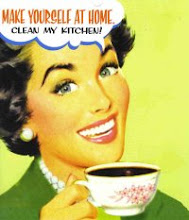On Depression-Era Policies that “led to recovery”, Jim Powell
In his most recent column, Harold Meyerson writes about the process now underway to determine “which of the paths that Depression-era America embarked upon actually led toward recovery.” He criticized Herbert Hoover’s Reconstruction Finance Corporation, a misguided policy to be sure (along with the 1930 Smoot-Hawley Tariff and the 1932 tax hike).
But Hoover left office in 1933. Since Mr. Obama has promised a “New New Deal,” one might expect Mr. Meyerson to point out something that Hoover’s successor, Franklin Delano Roosevelt, did that “led to recovery.” He doesn’t.
Truth be told, that’s probably because Meyerson doesn’t have much to choose from. Unemployment averaged 17 percent during the New Deal period; the only thing FDR did that banished high unemployment was conscripting 12 million men for World War II. In my book FDR’s Folly, I suggested a number of reasons this happened: The New Deal tripled taxes, which meant consumers had less money to spend and employers had less money for hiring; a number of New Deal laws made it more expensive for employers to hire people, which also meant less hiring; New Deal soak-the-rich taxes discouraged investment, and it’s almost impossible to create private-sector jobs without investment.
Other policies hurt Americans in other ways. Several New Deal laws banned discounting, when desperate people needed bargains; the New Deal authorized the destruction of food when people were hungry; the New Deal established hundreds of cartels and monopolies; the New Deal centralized the power of the Federal Reserve, and the Fed’s first major policy decision was a blunder that brought on a crisis within a crisis (the depression of 1938); the New Deal broke up the strongest banks and did nothing about laws that prevented thousands of banks from diversifying their depositor bases and their loan portfolios (Canada didn’t have these laws, and it went through the Great Depression without a bank failure).
The biggest irony is that although the New Deal was supposed to help the middle class and the poor, it was mainly the middle class and the poor who paid for it. The biggest source of revenue — bigger than the federal personal income tax and the federal corporate income tax — was the federal excise tax on beer, wine, cigarettes, chewing gum, soda, and other things bought disproportionately by middle-class and poor people. Moreover, New Deal spending was skewed away from the poorest people who lived in the South, and instead targeted toward political “swing” states where average incomes were more than 60 percent higher — even FDR pursued his interests as an incumbent.
Perhaps the most obvious lesson to be learned from the New Deal: Don’t try anything like that again.
Thursday, January 8, 2009
Obama - NO NEW DEALS
This post from National Review's The Corner was so good and dovetails so nicely with the book I'm reading ("The Forgotten Man - excellent) that I am posting it in full.
Subscribe to:
Post Comments (Atom)




No comments:
Post a Comment